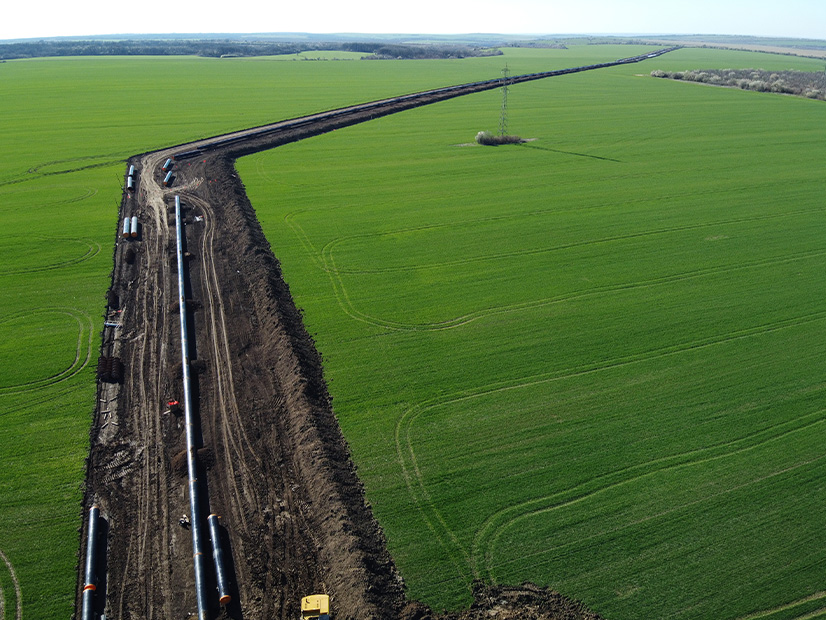
The Massachusetts Attorney General’s Office is looking for a way to ensure that the state’s natural gas leak mitigation program aligns with the state’s net-zero by 2050 target set in law last year.
“Utilities are continuing to spend millions of dollars annually on new infrastructure that we may not need in the future, so we need to rethink how we reduce methane and gas leaks in the gas distribution system,” Rebecca Tepper, chief of the AGO’s Energy and Environment Bureau, told legislators Monday during a Future of Gas oversight hearing of the Senate Global Warming and Climate Change Committee (GWCC).
In February, the AGO joined the Department of Energy Resources in asking the Department of Public Utilities to establish a working group to study utilities’ Gas System Enhancement Plans (GSEPs) in the next phase of the department’s ongoing Future of Gas docket (20-80). However, the department declined to convene the group.
“Addressing GSEP is a critical path to our decarbonized future,” Tepper told lawmakers. The legislature, she said, can require the DPU to establish a GSEP working group.
As part of DPU’s gas case, the state’s utilities filed proposals in March for reducing gas system emissions based on recommendations in an independent consultant’s report on potential state decarbonization pathways. (See National Grid Proposes 100% Fossil-free Gas System in Mass.) The report’s assumptions, Tepper said, rely on the continuation of GSEP and the costs associated with it.
A 2014 law allows the state’s utilities to file annual GSEPs with regulators for how they will repair or replace aging pipelines to address leaks and recover costs for those plans. The estimated cost for the utilities’ pipeline work, based on the pathways report, would be $40 billion through 2039, Dorie Seavey, an independent economist, said during the hearing.
Pathways in the consultant’s report would not be feasible if GSEPs “disappeared,” Seavey said. “The scenarios assume an upgraded gas distribution network outfitted with polyethylene plastic pipe ready to deliver fracked gas blended with biofuels, synthetic natural gas or hydrogen.”
Seavey sees GSEP’s purpose changing.
“The program’s founding mission was to reduce leaks, promote safety and lower methane emissions,” she said. “It has become the gas companies’ accelerated investment vehicle for making our gas distribution system biofuel and hydrogen ready.”
If the DPU approves the gas utilities’ proposals in the Future of Gas docket, it would establish a ratepayer tariff for the new fuels that is additional to the existing GSEP tariff, she said.
GWCC Committee Chair Sen. Cynthia Creem believes the department’s gas case will not be “complete or fair” if it does not consider the implications of GSEP for the state’s net-zero goal. And she is “seriously concerned” about the safety, cost and viability of using hydrogen and biofuels in decarbonizing the gas system.
“Most importantly, I have concerns about whether [hydrogen and biofuels] represent a path to net zero or merely offer a net-zero mirage,” she said.
Fair Participation
Stakeholders of the Future of Gas docket have asked the DPU to reconsider how it will continue with the gas proceeding now that the utilities have submitted their emission reduction proposals.
In a March 24 memorandum, the DPU established a schedule that five organizations, including Sierra Club and the Environmental Defense Fund, say does not provide ample opportunity for stakeholder input on the utilities’ proposals. The schedule puts the focus of the DPU’s case on reviewing the assumptions of the consultant’s report and the utilities’ proposals, and creation of a regulatory and policy roadmap for the state’s gas distribution industry.
“Failure to allow for the presentation of technical evidence and for cross-examination of the utilities’ consultants will result in a regrettably flawed outcome from this proceeding,” the petitioners said in a March 28 motion for consideration.
They are asking the DPU to “extend” the schedule to allow entities to obtain party status in the docket, participate in discovery, present testimony and cross-examine witnesses. The petitioners said that, despite their engagement with the utilities’ consultants to date, their feedback was ignored, making the utilities’ proposals “inherently flawed.”
The state’s five gas utilities asked regulators to deny the motion in an April 4 response to the petition, saying it would constrain the department’s ability to include a broad spectrum of stakeholders, regardless of their ability to retain legal counsel.
“The legislature may have to intervene … to ensure that there is an opportunity to scrutinize the gas company’s proposals before the Commonwealth chooses which future to pursue,” Creem said in the GWCC committee hearing.


